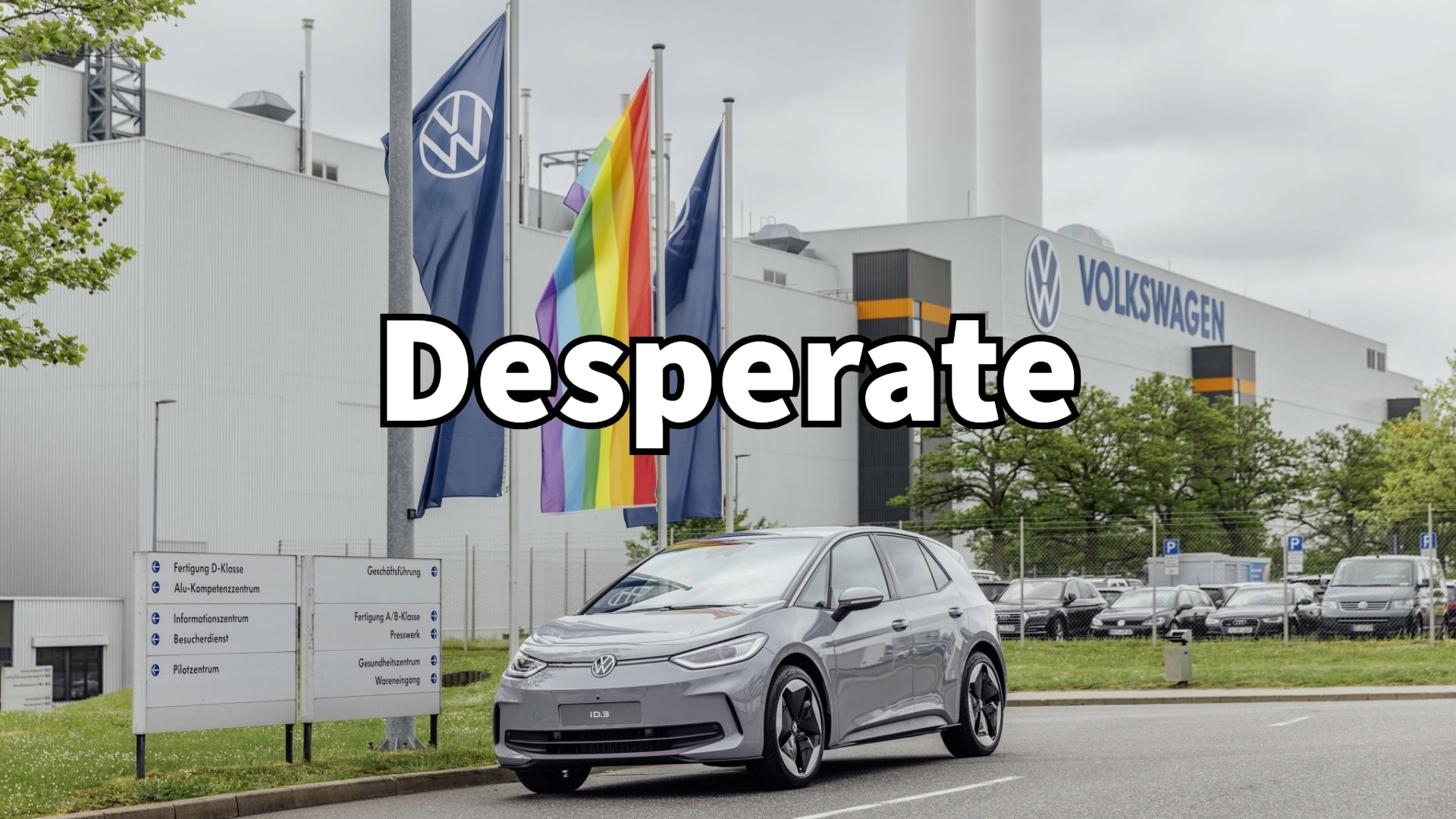Rivian and Volkswagen have announced a surprise partnership to develop next-generation software, electronic control units (ECUs) and related network architecture design and development. The move shows that Volkswagen’s gamble on Cariad has backfired, though Rivian’s software expertise may not have helped matters that much.
As surprising as it may seem, the announced partnership between Rivian and Volkswagen must have been a long time in the making. The terms of the deal sound great for both companies, at least on paper. Rivian gets an immediate capital injection that’s vital to its survival as it tries to ramp up production of the Gen 2 and work on the R2/R3 ranges. In return, Volkswagen benefits from Rivian’s expertise in developing and manufacturing software-defined vehicles. But outside of this idyllic landscape, the details paint a different picture.
Terms of the deal show Volkswagen paying $1 billion to acquire Rivian shares by the end of the year. Half of this amount is locked at a Rivian stock price of $10.84 per share, which was likely the price when the deal closed. The rest will reflect the share price closer to the deal’s completion date, but no earlier than December 1, 2024. Even if shares skyrocket by then, Volkswagen is expected to become Rivian’s second-largest shareholder, after Amazon.
This first part of the deal sounds like a marriage of convenience, with Rivian essentially selling a large chunk of the company to Volkswagen on the cheap. It reflects Rivian’s dire financial situation as the company tries to ramp up Gen-2 production and continue development of the R2/R3 models. The second part of the deal, however, is just as important, and demonstrates Volkswagen’s desperation to have a working software platform that its software arm, Cariad, has been unable to deliver.
The deal involves the creation of a joint venture, with Volkswagen and Rivian as equal partners. The joint venture aims to create “next-generation electrical architecture and best-in-class software technology.” As Rivian CEO RJ Scaringe explained during the June 25 investor call, this would not involve collaboration on powertrains, batteries or vehicle platforms. However, the fine print states that the joint venture is not a done deal and will only happen if “certain milestones” are being reached.
Rivian-Volkswagen joint venture appears doomed to failure
Volkswagen’s press release offers more detail than Rivian’s, explaining that the joint venture is dependent “the final results of the further assessment of the technical feasibility of the integration of [Rivian’s] E/E architecture in Volkswagen vehicles And “further negotiations between the parties.” Volkswagen emphasizes that no final decision has yet been made on the establishment of the joint venture. Based on past data from the Volkswagen joint venture, this may never happen.
This essentially means that Volkswagen’s $1 billion investment is not only buying a significant stake in Rivian, but also the right to analyze Rivian’s software platform and electrical/electronic architecture. This move shows that despite Volkswagen’s vast resources, Cariad has not made much progress on its next-generation software architecture. But even if Rivian provides a turnkey software solution to Volkswagen, there’s no guarantee it will help the company much.
Software organizations are above all about culture, and Volkswagen’s complicated bureaucracy simply isn’t suited to Rivian’s agile startup thinking. Whatever software solution Rivian brings to the table, it won’t be easy to implement in existing Volkswagen vehicles. For this to work, new models must be developed from scratch with new ECUs and a different network architecture.
Meanwhile, an army of Volkswagen executives will work hard to delay or even prevent change, if possible. At best, the Rivian-Volkswagen software joint venture would be no more successful than Cariad. Software-defined vehicles are built differently, with a high degree of vertical integration that allows tight control of hardware and software. I just don’t see Volkswagen changing the way it has been building cars for decades. If it had been willing to do that, Herbert Diess would still have been running the company.
Rivian could be great for Volkswagen if it is willing to change
The fact that the joint venture is divided equally between the two partners will complicate matters even more. Making decisions will be almost impossible, and they will most likely look like a compromise that will not yield the desired result. History shows that Volkswagen is very bad at keeping its joint ventures alive, and some of them (think of the one with Suzuki) have ended in international scandals without yielding any results.
Volkswagen has previously tried to fix its software literacy woes by investing in other startups. In 2019, it invested $2.6 billion in Argo AI, an autonomous driving startup that also had Ford as a backer. However, Argo AI shut down in 2022 after Ford and Volkswagen withdrew support and pledged to continue their own software projects. We know how well this went, as Cariad failed to make the breakthrough Volkswagen was hoping for despite burning billions of dollars.
I sincerely hope that the collaboration between Rivian and Volkswagen will be successful, but there is still a long way to go. The fact that Volkswagen doesn’t seem very committed to the joint venture and is more focused on a peek into Rivian’s software platform is telling. However, if Volkswagen is truly interested in making this partnership work, Rivian could give it a fighting chance in the fast-changing era of software-defined vehicles. The startup could also provide key technology for Volkswagen’s newest brand, Scout.
